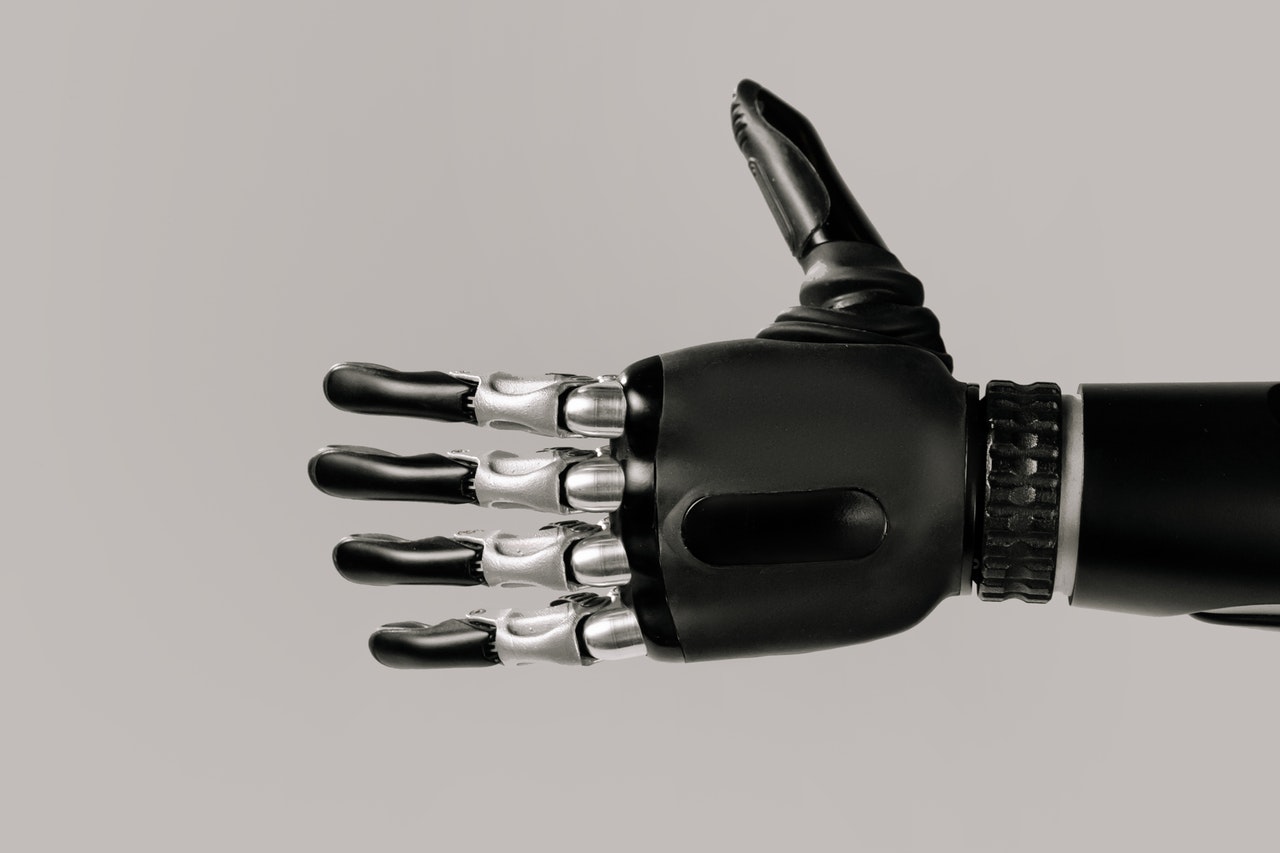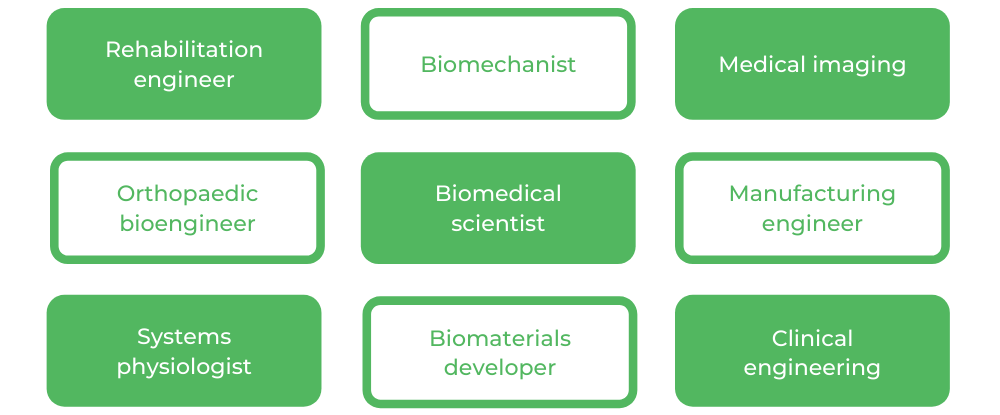Are you considering a degree in UTS Biomedical Engineering?
Well we’re about to cover the pros and cons of this degree. If you want to know a little bit more about the degree in general, have a read of what it’s like studying a Bachelor of Engineering (Biomedical) at UTS here.
Without further ado, let’s get started!
Why should you study a Biomedical Engineering degree at UTS?
Top 3 Pros of a Biomedical Engineering Degree
Top 3 Cons of a Biomedical Engineering Degree
Mistakes You Shouldn’t Make
Things to Know Before Starting UTS Biomedical Engineering
What Makes this Degree Different
Motivations for Studying UTS Biomedical Engineering
Potential Career Paths
Why should you study a Biomedical Engineering degree at UTS?
Biomedical engineering is an area of study that will be continuously growing in demand for years from now, so the job prospects and needs for Biomedical graduates is huge!
With a focus on improving technologies and systems for bettering our health and lifestyle, you’ll be able to learn about fundamental devices and systems that have improved our world, particularly in the field of medicine.
“The industry itself is rapidly growing”, Aarya said. “We will always need biomedical engineering and there’s going to always be a high demand in the medical industry.”
Top 3 Pros of a Biomedical Engineering degree
#1: The projects are hands-on
With Biomedical Engineering you’re given the opportunity to work on a number of really practical and hands-on projects. There’s a great amount of focus on the applicational and real-world relevance of what you’re studying to prepare you for the industry!
So not only are you getting the opportunity to apply theoretical knowledge, but you get a taste of what it’s like to work in the Biomedical industry, and the kind of skills and qualities you need to carry out projects.
#2: You have access to experienced professionals
As Aarya mentioned, she really enjoys the practical experience and hands-on aspect of the course. This also involves experience working with engineers, and other industry professionals to receive guidance and support from.
“I get to work on really cool projects that I never thought I would get to work on. Like AI, I thought that would be for after I get into the industry, but because I have access to so many experienced industry professionals, I’m able to get really good advice on how to create and improve my project.”
#3: UTS provides you with industry placement
Overall, UTS is known for taking really practical approaches to degrees, and its focus on employability. A major part of this is experience, of course!
So part of a degree in Biomedical Engineering, is that you must complete a total of 12 months in an internship. This is often split into two, 6 month internships, to fully equip you for the workplace and provide you with experience on your resume or portfolio.
Through work experience, Aarya learnt to develop a practical mindset. “I learned to look at myself not just as someone that needs a job, but as someone that’s an asset to the company,” Aarya said.
Top 3 Cons of an Biomedical Engineering degree
#1: There are unpaid internships
As with any industry, you need experience to get a job, and how do you get experience without a job? Internships! The con with internships however, is that most of them are unpaid, and often full-time on top of studying.
Aarya said, “I wanted more and more industry experience, and the internships I landed were not paid — I was working 12 hour days. Even though I was struggling I tried to make it work because I wanted that experience.”
#2: The course can get overwhelming
Juggling full time university with a full-time, unpaid internship, and often a casual job on top of that, is like squeezing 48 hours into one day. The course is quite demanding in that sense.
“I didn’t want to blow off any opportunities, so it gets really overwhelming,” Aarya said.
“You need to be able to look at how you’re performing in each component. If you feel like your performance is lowering in one or two components, one of them being your health and your sleep, you need to watch out.”
#3: You must have good time management skills
“One of the downfalls would be if you don’t have good time management. When I’m on placement, every second of the day I need to be doing something,” Aarya said.
Due to the demanding nature of the course, time management skills are imperative. However, time management is one of those qualities that we all are constantly trying to improve, and it can be really hard to maintain.
Any regrets?
Aarya said, “I wish I didn’t do a solar industry for my first internship because it wasn’t related that much to biomedical engineering.”
So when it comes to your time of choosing internships, perhaps look at all the options and try to choose one you’re most interested in and is relevant to your focus on study!
What do you wish you had known before starting UTS Biomedical Engineering?
Although this course is an Engineering degree, it’s important to note that you’ll be taking economic and other business based subjects. So, it’s not all just science based!
“Engineering has such a stigma for being really maths and physics heavy, so I wish I knew how much we needed to know about the business side of things, because we learnt about economics, marketing and finance,” Aarya said.
If Aarya knew there would be a business and economic aspect of the course, she would have considered taking the relevant subjects in high school — however it isn’t required or assumed knowledge.
What makes this degree different from the ones offered at other universities?
The major difference you’ll find if you choose to study Engineering (Biomedical) at UTS, is the focus and directed learning towards practical experience!
There’s a lot of student and staff support to help launch you into the industry, particularly with the 12 months you have to dedicate to obtaining that industry experience.
What inspired you to choose UTS Biomedical Engineering?
For Aarya, she was naturally inclined to Biomedical Engineering, although she initially wanted to go into Civil Engineering.
“I had watched a show called Black Mirror and it had really cool technological ideas, even movies like the Terminator and having robotic body parts, implants and prosthetics… as a 17 year old that’s what I was interested in and attracted to.”
Overtime, Aarya’s inspiration to pursue Biomedical Engineering has developed.
“Now that I’ve done the degree, I’ve been able to understand what Biomedical Engineering actually is. The discipline itself looks to support medical professionals and increase someone’s comfort of living.
“I’m also really interested in Humanitarian Engineering, and helping developing countries, being from a developing country myself. So I wish to be able to provide support to these countries with the education I’ve gained here, and I think that’s a big motivator for doing this degree,” Aarya said.
What are the possible career paths?
As we mentioned at the beginning of this article, Biomedical Engineering is an industry that is experiencing rapid growth in this day and age, so the career paths are plentiful!
Some of the careers you could follow as a Biomedical graduate are:
-
- Rehabilitation Engineer
- Biomechanist
- Medical Imaging
- Orthopaedic Bioengineer
- Biomedical Scientist
- Manufacturing Engineer
- Systems Physiologist
- Biomaterials Developer
- Clinical Engineering
This is just a small taste of the future you could follow, but there are so many other occupations relating to Biomedical Engineering out there!
We hope you’ve gotten a better idea of what a Bachelor of Engineering (Biomedical) is like at UTS, and you have a clearer understanding of what the course weighs out to be.
Nandini Dhir is a Content Writer at Art of Smart and is currently studying a Bachelor of Arts (majoring in Marketing) and a Bachelor of Advanced Studies (Media and Communications), as a Dalyell Scholar, at Sydney University. She enjoys covering local issues in her area and writing about current events in the media. Nandini has had one of her pieces published in an article with the Sydney Morning Herald. In her free time, Nandini loves doing calligraphy, ballet, and sewing, or is otherwise found coddling her cats.





